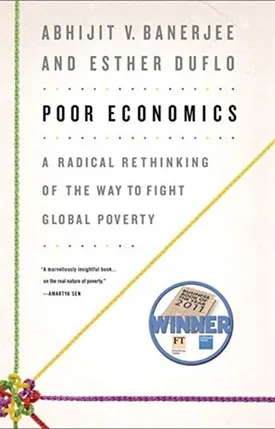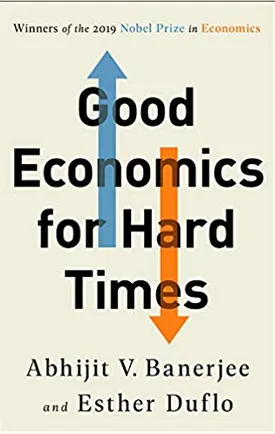Esther Duflo
Esther Duflo is a leading development economist whose research focuses on poverty and health. She is a professor of Social Science and Economics at the Massachusetts Institute of Technology and the Abdul Latif Jameel Professor of Poverty Alleviation and Development Economics at the Abdul Latif Jameel Poverty Action Lab. She was awarded the 2019 Nobel Memorial Prize in Economic Sciences along with her husband Abhijit Banerjee and Michael Kremer for their work to reduce poverty.
Duflo was born in France in 1972 in what she calls a prototypical academic family. Both her parents were medical professionals who were passionate about the subject and would talk about it at home. Her parents encouraged her to follow her intellectual interest and from an early age, she found a great interest in both mathematics and economics. She attended ESSEC Business School in France, then went on to study at the Massachusetts Institute of Technology, where she earned an MA, MPhil, and PhD in economics.
Duflo’s research focuses on poverty, including health, education, and technology. She has developed field trials, randomized controlled trials, and natural experiments to better understand the specific dynamics of poverty and how best to tackle it. She has contributed to showcasing the importance of both household and policy level interventions, and the questions she has asked have opened the door to new ways of thinking about development.
Duflo’s research has been at the forefront of development economics, particularly in poverty alleviation. For instance, one of her projects looked at the detrimental effects of air pollution in India on pregnant women and their children. The study, which relied on randomized controlled trials, showed that reducing air pollution could reduce infant mortality by 70%, thus informing governments how to better tackle what is an ongoing problem across India and many parts of the world.
In addition to the Nobel Memorial Prize, Duflo has received many awards for her work. In 2016, she received the prestigious John Bates Clark Medal, which is given out every two years to the most influential economist under forty. In 2017, Duflo and Banerjee were awarded the prestigious Infosys Prize, which is awarded to field-leading researchers and scientists.
Duflo is also the author of several books, including Poor Economics: A Radical Rethinking of the Way to Fight Global Poverty (2012) written with Banerjee and The Economic Lives of the Poor (2013). In her book, she advocates for the use of both data-driven and field-based approaches to better understand poverty and increase the chance of success in alleviating it.
Since joining MIT, Duflo has also founded a variety of initiatives designed to increase investment in young economists coming from developing countries. These initiatives are geared to providing mentorship and scholarships for students from a variety of backgrounds.
Esther Duflo's work has been extremely influential in showing how development economics can be used for poverty alleviation. Through her research and advocacy, Duflo has made a significant contribution to both economics and the fight against global poverty. She is a leader in her field and her proposals for policies and interventions make her an invaluable resource for improving living standards in underdeveloped countries.


